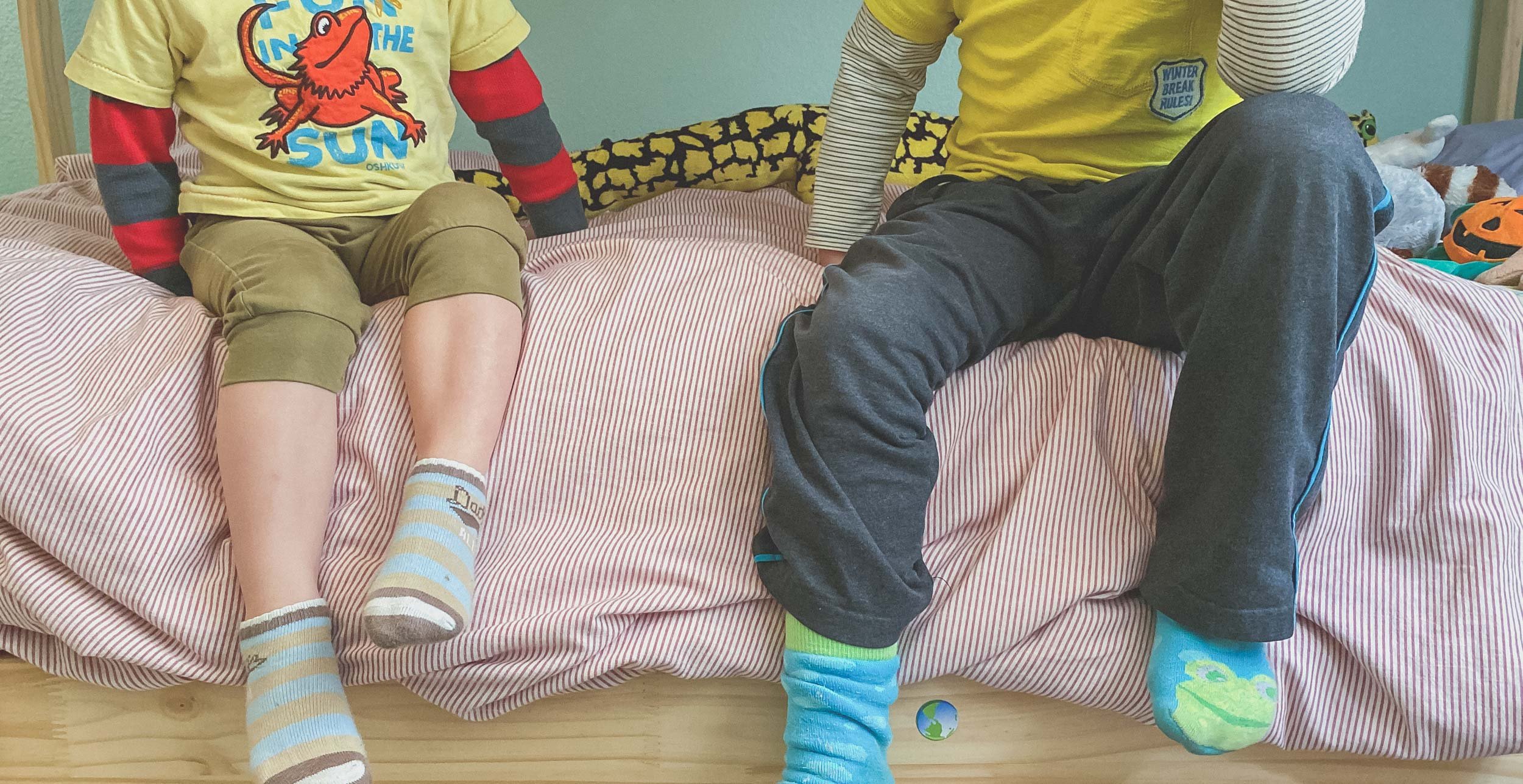Poetry (the mistakes we catch in the dark of a tuck-in).
Chapter 1 : setting and canonical
I lay by him in the dark, his squiggly body squiggling.
Chapter 2 : inciting incident
illustration by J.X. Long (age 10) ©2020
Would you like to talk about poetry?
I whispered.
I think,
he whispered; his whisper a volume louder than many’s raised voices,
I think I’m going to say yes, that I want to talk about poetry.
Chapter 3 : exposition
His recent phrase has been responding to questions by starting a response with
“I think that I’m going to say…”
I rather enjoy this methodology, and might be good reminder for journalists to follow. “Let me tell you what I’m going to tell you, and then I’ll tell you.”
Chapter 4 : obstacles
So,
I suggested,
how about…No Man Is An Island?
No,
he reminded me.
We already did that one tomorrow.
Chapter 5 : the future is the past
One of my favorite phrases he’s done, throughout his tenure of Age Three, is referring to the future in past tense. This may put the previous section into more understandable context.
It’s really an enjoyable way to make conversation more delicious and force people to be on their tip toes.
“Thank you for the scrumptious dinner you made tomorrow,” I plan on saying to Becca someday, or I might have already said it next week.
Chapter 6 : more obstacles
So no No Man Is an Island, I ask. What about…Shakespeare’s Sonnet 116?
Nah,
he dismissed immediately. I already did that one tomorrow too.
Okay,
I agreed.
Let me see if I can come up with one more option.
Chapter 7 : into the forest we go
How about Little Miss Muffett?
I suggested.
Would that be a good nighttime one?
Yes! he agreed with a thunderous whisper.
I began.
Chapter 8 : crossing the Rubicon
Little Miss Muffett,
I began,
sat on a tuffet,
eating her curds and whey.
I could hear him muttering along in the darkness as I raced through the remaining lines:
Along came a rhinoceros,
who sat down beside her, and
scared Miss Muffet away.
There!
I said.
Was that good!
No!
he said.
It was not good! You did it incorrectly!
Really?
I said.
What did I say incorrectly?
What was incorrect?
I asked, my face a self-portraiture of innocence in the dark night.
What was incorrect,
he stated uncertainly,
was that….was that you said…
he paused, seemingly trying to ensure he correctly assessed my error.
…what you said incorrect,
he said, picking up confidence,
was that you said “scared,” and it’s supposed to be “frightened.” Miss Muffet was frightened away.
Oh.
I said.
Good point. Let me try again.
Chapter 9 : conflict resolution / falling action
I tackled it for a second time:
Little Miss Muffet
sat on a tuffet,
eating her curds and whey.
I paused and queried: Okay so far?
Yeah. he boomed in my ear. You are correct.
I continued, and picked up the pace now that I had my confidence back.
Along came a crocodile,
who sat down beside her,
and frightened Miss Muffet away.
How was that?
I asked quickly.
He laughed.
That was good, he said.
Because you said it correctly this time. You said “frightened” instead of of “scared” and it was correct this time. Why did you say it wrong the first time?
I’m going to have to think about that one.
I said.
I wonder what it was that made me do it incorrectly?
We breathed quietly in the dark together, thinking of poetry and poets. I broke it again:
So you thought I did a pretty good job overall of doing the poem correctly? Anything else I could improve on?
Chapter 10 : resolution
He thought loudly.
It was good,
he finally repeated.
You did correctly the second time, because you said “frightened.” Except -
I quickly interrupted.
- Except what?
Except,
he continued.
I think it’s actually supposed to be a spider.
Well,
I said.
I am relieved that you barely noticed that minor mistake. Thank you for correcting me on the big one. I will try not to confuse “frightened” and “scared” again. Thank you for helping me learn it correctly. I really appreciate it.
You’re welcome.
he said,
and went to sleep,
Epilogue
and I pray that his guardian rhinoceroses - rhinoceri? - will look out for him, and scare - I mean frighten - away any bad dreams he might have.
——
Author’s note
What can we learn about priorities and perspective from children? Well, to begin with, what are the mistakes or errors we think are obvious, and what are the ones they think are obvious, and what does it say about different ways of viewing the world and the details that are important (or less important) in a story?
I don’t know.
I simply think it’s good to keep telling stories and nourishing our emotional health with vibrant dialog and banter.
——






